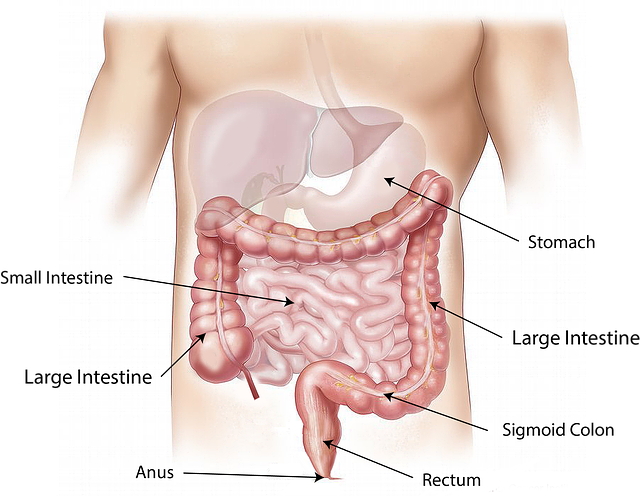

The gastrointestinal (GI) tract plays a pivotal role in our overall health, far beyond the mere digestion of food. It’s a complex system that, when in balance, supports not just the absorption of nutrients, but also our immune function, mental health, and even the regulation of mood. Yet, despite its critical importance, the health of this vital system is often overlooked until significant problems arise. This oversight underscores the necessity of regular gastrointestinal check-ups—a preventive measure that can, quite literally, save lives.
The aim of this blog is to shed light on the indispensable benefits of routine GI examinations. Through regular check-ups, potential issues can be identified and addressed long before they escalate into serious health concerns. These examinations serve as a cornerstone of preventive health care, offering a proactive approach to maintaining gastrointestinal wellness. By understanding the life-saving potential of these regular check-ups, we can take informed steps towards safeguarding not only our digestive health but our overall wellbeing.
1. Early Detection Of Colorectal Cancer
Colorectal cancer stands as one of the most common forms of cancer worldwide, yet it is also among the most preventable through early detection. The significance of early intervention cannot be overstated, as it dramatically increases the chances of successful treatment and survival. The reality is that regular gastrointestinal check-ups, particularly colonoscopies with your gastroenterologist are imperative in the fight against colorectal cancer.
Colonoscopies are a cornerstone in the early detection of colorectal cancer. This procedure allows for a direct visual examination of the colon and rectum, providing an opportunity not just to detect, but also to remove precancerous polyps before they have the chance to evolve into malignant tumors. The removal of these polyps is a proactive step, effectively preventing the development of cancer.
The critical nature of early detection lies in the nature of colorectal cancer itself. In its early stages, this cancer often presents with little to no symptoms, making it a silent threat that can quietly progress to more advanced and less treatable stages. Regular screenings break this cycle, offering a powerful means of early intervention. By identifying and addressing potential issues before they escalate, colonoscopies serve as a vital tool in reducing the incidence and mortality associated with colorectal cancer.
2. Management Of Chronic Conditions
Chronic gastrointestinal (GI) conditions, such as Crohn’s disease and irritable bowel syndrome (IBS), present ongoing challenges to those affected, significantly impacting their quality of life. These conditions, characterized by periods of remission and flare-ups, require diligent management and a nuanced understanding of the triggers that may exacerbate symptoms. The role of regular GI check-ups in this context cannot be understated, as they are fundamental in maintaining control over these chronic conditions and enhancing patient wellbeing.
Regular check-ups provide a structured framework for monitoring the progression of chronic GI conditions. For individuals with Crohn’s disease, this might involve assessing inflammation levels and checking for complications that could necessitate adjustments in treatment. In the case of IBS, regular consultations can help in identifying dietary or lifestyle factors that may trigger symptoms. These check-ups allow for a dynamic approach to management, where treatment plans can be adapted based on the current state of the condition, ensuring that interventions are both timely and tailored to the individual’s needs.
Moreover, the preventive aspect of regular check-ups in managing chronic GI conditions is invaluable. By closely monitoring the condition, healthcare providers can preemptively address issues before they escalate into severe flare-ups, thereby avoiding emergency interventions and hospitalizations. This proactive approach not only reduces the physical burden of the disease but also alleviates the psychological stress associated with unexpected complications.
Ultimately, the management of chronic GI conditions through regular check-ups is a testament to the power of preventive care. It underscores the importance of a proactive, rather than reactive, approach to health management. By facilitating early intervention, optimizing treatment strategies, and preventing flare-ups, regular GI check-ups empower individuals with chronic conditions to lead fuller, more comfortable lives, minimizing the impact of their condition on their daily activities and overall wellbeing.
3. Prevention Of Ulcers And Complications
Ulcers, particularly those occurring within the gastrointestinal (GI) tract, represent a significant health concern that, if left unchecked, can lead to severe complications and disrupt the quality of life. They are primarily caused by an imbalance between digestive fluids in the stomach and the protective mechanisms of the GI tract. This imbalance can be triggered by factors such as long-term use of nonsteroidal anti-inflammatory drugs (NSAIDs), infection with Helicobacter pylori, or excessive alcohol consumption. Symptoms often include abdominal pain, bloating, and in some cases, nausea or vomiting.
The Risk of Complications
Without timely intervention, ulcers can lead to serious health complications. One of the most immediate concerns is bleeding, which can occur when an ulcer erodes into a blood vessel. This condition may manifest through symptoms such as blood in vomit or black, tarry stools, and can lead to anemia or more severe blood loss requiring hospitalization. Another grave complication is perforation, where the ulcer creates a hole in the wall of the stomach or small intestine, leading to an acute abdominal emergency that necessitates surgical intervention.
The Role of Regular GI Check-ups
Regular gastrointestinal check-ups play a pivotal role in the early detection and prevention of ulcers and their associated complications. Through routine evaluations, healthcare providers can identify the early signs of ulcer formation, often before patients experience significant symptoms. This early detection is crucial for implementing timely treatment strategies, such as medication adjustments, dietary modifications, or eradication of H. pylori infection, thereby preventing the progression to more serious conditions.
Moreover, regular check-ups provide an opportunity for healthcare professionals to educate patients on the risk factors associated with ulcer development, empowering individuals to make lifestyle changes that reduce their risk.

4. Identification Of Food Intolerances And Allergies
Food intolerances and allergies manifest when the body reacts adversely to certain foods, leading to a range of symptoms from mild discomfort to severe allergic reactions. Unlike food allergies, which involve the immune system and can cause life-threatening reactions, food intolerances generally result in digestive problems, such as gas, bloating, or diarrhea, and do not involve an immune response. The reasons behind the uptick in these conditions are multifaceted, including changes in dietary habits, environmental factors, and increased awareness leading to more diagnoses.
The Role of GI Check-ups
GI check-ups are instrumental in the early identification of food intolerances and allergies. Through comprehensive evaluations, including detailed patient histories, symptom tracking, and specific diagnostic tests, gastroenterologists can pinpoint the foods causing distress. These assessments may involve elimination diets, in which foods are systematically removed and then reintroduced to observe reactions, or more advanced testing like blood tests for allergies and breath tests for intolerances.
Identifying the exact cause of food-related issues is the first step in managing these conditions effectively. Once a diagnosis is made, healthcare providers can work with patients to develop tailored dietary plans that eliminate or reduce exposure to the offending foods. This personalized approach not only alleviates symptoms but also enhances patients’ quality of life by preventing the discomfort and potential dangers associated with these conditions.
Beyond Symptom Relief
The benefits of identifying food intolerances and allergies extend beyond mere symptom management. By making necessary dietary changes, individuals can improve their nutrient absorption, boost their immune system, and reduce the risk of chronic inflammation linked to a host of other health issues, including some autoimmune diseases. Furthermore, understanding one’s dietary restrictions empowers individuals to make informed choices about their nutrition, leading to a healthier lifestyle overall.
5. Enhancing Overall Health And Wellbeing
The profound influence of the gastrointestinal (GI) tract on overall health and well-being cannot be overstated. Beyond its critical functions in digestion and nutrient absorption, the GI system plays a pivotal role in mental health, immune response, and systemic wellness.
The gut is often referred to as the “second brain,” a nod to the gut-brain axis that links our digestive system with our mental health. This connection means that imbalances in the gut microbiota can affect our mood, stress levels, and even susceptibility to mental health disorders. Regular GI check-ups help monitor the health of our gut flora, ensuring our mental wellbeing is supported by a balanced digestive environment.
Immune System Support
A significant portion of the body’s immune system resides in the GI tract, making it a frontline defense against pathogens. A healthy gut supports a robust immune system, ready to fend off infections and diseases. Through regular check-ups, potential issues that could compromise our immune health, such as inflammation or infections, can be identified and addressed early, keeping our body’s defenses strong.
Systemic Health Impact
The state of our GI tract can reflect and affect the health of our entire body. Conditions such as chronic inflammation, which can stem from GI issues, are linked to a range of diseases, including heart disease, diabetes, and autoimmune disorders. Regular gastrointestinal check-ups allow for the early detection and management of such conditions, preventing their escalation and the toll they can take on our overall health.
Preventive Care for Longevity
Ultimately, regular gastrointestinal check-ups embody the principle of preventive care. By identifying and addressing GI issues before they develop into more serious health problems, these check-ups play a crucial role in maintaining not just our digestive health but our overall physical and mental wellbeing. They are a testament to the interconnectedness of our body systems and the importance of holistic health maintenance.
In essence, regular gastrointestinal check-ups are a vital investment in our health, offering benefits that ripple through every aspect of our well-being. By prioritizing the health of our GI tract, we take a significant step toward a healthier, more vibrant life.

Conclusion
The significance of gastrointestinal (GI) health cannot be overlooked. As we’ve explored, the GI tract is not merely a digestive organ but a central pillar supporting our mental health, immune function, and overall systemic health. Its wellbeing is intricately linked to our capacity to lead a fulfilling and vibrant life, free from the constraints of illness and discomfort.
Regular gastrointestinal check-ups stand as a cornerstone of this approach, offering a proactive pathway to identify and address potential issues before they escalate into more significant health concerns.
